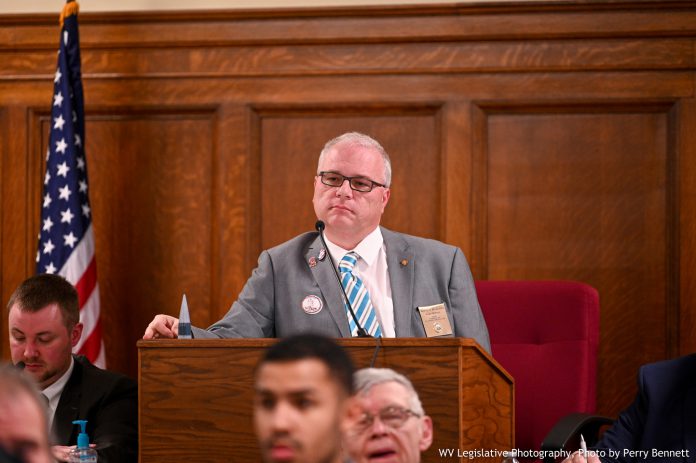The House Government Organization Committee advanced a bill on Wednesday that would reduce the amount of tax on alcoholic apple cider.
House Bill 4159 is meant to facilitate the economic development of hard cider in this state by reclassifying hard cider in code. Currently, hard cider is being taxed under the classification of wine due to the fermentation process. However, many compare the beverage of hard cider as an alternative to beer because they have a similar alcohol content. Wine is taxed at a significantly higher rate than beer, and advocates said the rate is hindering the growth of the hard cider industry. Under this new classification, hard cider will be taxed at a rate that is in between wine and beer.
Jennifer Greenlief, assistant commissioner at the West Virginia Department of Agriculture, said that this lowered tax would help promote the growth of the hard cider industry in our state. She said West Virginia has the potential to be a big contender in the cider market because of the growing conditions in the state.
She also told the committee that this bill was modeled after a successful program in our neighboring state, Virginia. Their hard cider industry has grown significantly in the past several years. Virginia reflects the standard of national cider sales, which have grown an average of 73% each year over the past five years.
The bill also dedicates money from the cider tax to further fund and develop the industry. The money in this Agriculture and Development fund will be used to grow local apples and other fruits.
House Bill 4159 will be examined in House Judiciary before being reported to the full House.
The Government Organization Committee also advanced House Bill 4663, which would eliminate certain payments to the Alcohol Beverage Control Commissioner from distilleries and mini distilleries that the commissioner distributes to market zone retailers. Market zone retailers that bid on liquor licenses own exclusive rights to sell liquor in the state.
Under current law, all distilleries and mini distilleries in the state must pay a two percent fee to the West Virginia ABCA, which is then distributed to all liquor distributers in the state. The fee is a selling fee which is considered payment for putting products on shelves.
This bill would eliminate the 2% payment for distilleries and mini distilleries that do not sell their products to other stores. It only includes distilleries that sell their products exclusively on premise.
According to the West Virginia Retailer’s Association President Bridget Lambert, one-third of the state’s liquor stores are free-standing, and two-thirds are owned by a multinational corporation, which includes corporations like Walmart, Walgreens and CVS.
House Bill 4663 will be examined in House Finance before being reported to the full House.

